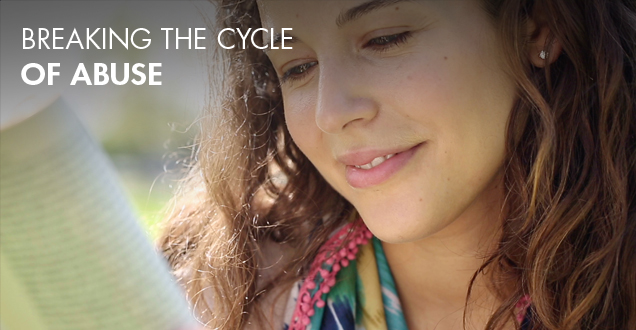
When seeking help for an addiction, one of the first steps to a successful recovery is realizing the cycle of abuse that underlies addictive behavior. Addiction is pervasive and all-encompassing, but it can be overcome through breaking this cycle. In order to successfully stop the cycle of addiction, it is important to recognize the stages of the cycle, as well as common addiction triggers for each individual.
Building Phase
During this phase, individuals are attempting to stem their addictive urges and live without indulging them. However, external and internal stimuli combine to form tension and stress on the individual. Addiction triggers vary greatly depending on personal experience and the type of addiction they have, but all addicts have certain triggers that push them to engage in addictive behavior.
One of the most important steps in a successful recovery is ascertaining the addiction triggers that force each unique addict back into the cycle of abuse. Once these catalysts are identified, steps can be taken to mitigate their effect and redirect that energy towards a more positive, healthy outcome instead of engaging in addictive behavior.
For many addicts, it takes deep introspection and examination to identify their particular triggers and attempt to lessen their effects. During this building phase, addicts experience an increasingly strong urge to engage in addictive behavior, and for those that do choose to indulge in their addiction, they enter the abuse phase.
Abuse Phase
The abuse phase is often the phase that addicts and their loved ones know best. When an addict begins to engage in addictive behavior, it can be exceedingly difficult to pull them away and break the addiction cycle. During this phase, an addict will act on the urges they were resisting in the building phase. In order to exit this phase, an addict must realize that their behavior is self-destructive and possess the will to break this destructive cycle and enter the recovery phase.
The breaking point for this phase varies depending on the individual. Some addicts recognize the need to seek help when they hurt a loved one, are arrested by law enforcement, or any number of circumstances. The commonalities of this phase include destructive behavior and a struggle to find a way to escape the need to continue engaging in addictive behaviors. This phase is the easiest to enter and the hardest to exit, but what lies on the other side of the abuse phase is worth the effort.
Recovery Phase
The recovery phase is where Casa Palmera can intercede to help addicts regain their footing and begin the process of emotional and physical healing. In order to break the cycle of addiction, the underlying behavioral and emotional issues each addict faces must be dealt with. For many addicts, there has been trauma and emotional pain that has caused them to succumb to addictive impulses and behaviors.
The recovery phase can take many forms depending on the type of addiction, the severity of the addiction, and the unique emotional, physical, and mental characteristics that comprise the individual. Casa Palmera offers a variety of different treatment types to best suit the needs of those in the recovery phase and help them to break the cycle of addiction.
Casa Palmera offers three different types of care including Residential Treatment (RTC), Partial Hospitalization with or without board (PHP), and Intensive Outpatient Program (IOP). These varying levels allow each patient to customize their care to their personality, situation, and addiction. Determining factors for choosing the right type of care can vary, but the most important thing to consider is what will work best for the patient.
Steps to Take to Break the Cycle of Abuse
- Surround yourself with loved ones, friends, and family that can act as a support structure and encourage non-addictive behavior.
- Seek professional help to aid you in your path to sobriety.
- Identify your potential addiction triggers and consider why they act as a trigger.
- Using this knowledge about your addiction triggers, develop a plan to mitigate their effects and avoid allowing your addiction triggers to push you into the cycle of abuse.
- Find a way to compartmentalize and process potential addiction triggers in a healthy, productive way. Examples of this can be exercising, playing with your dog, watching a favorite show, spending time with a friend, cooking a nice meal, or any number of other possibilities. Find something you love to do that releases stress, and turn all of your anxiety, pressure, guilt, and pain into something healthy and happy. By doing this each time you feel the urge to engage in addictive behavior, you create a new habit that is beneficial instead of destructive.
- Remove all reminders and paraphernalia associated with your addiction from your life so that they cannot be easily accessed.
- Cease all connection with people who will encourage or incite addictive behavior in you.
- Develop a set of both short-term and long-term goals, as well as potential rewards for when each goal is met. There should be goals that are both relatively easy and exceedingly difficult. In having a balance of both, you will have the opportunity to succeed and gain positive momentum, as well as more long-term goals to commit to.
- Remember to be kind to yourself and celebrate each day that you do not succumb to the cycle of addiction.
The cycle of abuse that addicts face is an exceedingly difficult process to break. The path between these phases can be murky and circular depending on the struggles of the individual addict, but each addict will pass through these phases during their journey.
Our goal at Casa Palmera is to help patients identify their addiction triggers, get the help and support they need, and break the cycle of addiction and abuse that defines the recovery process. Please don’t hesitate to reach out for help if you or a loved one battle with an addiction. You are not alone.



